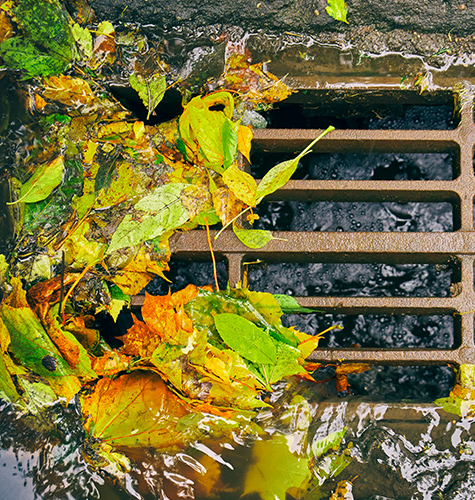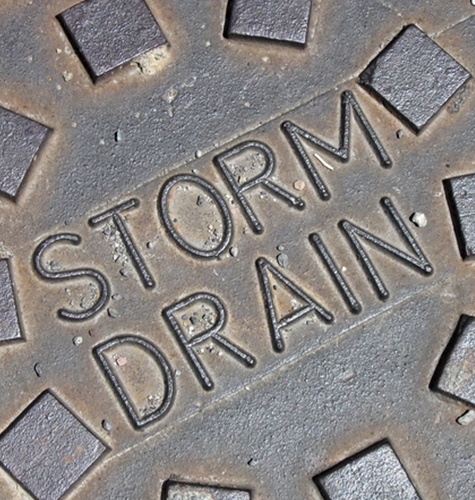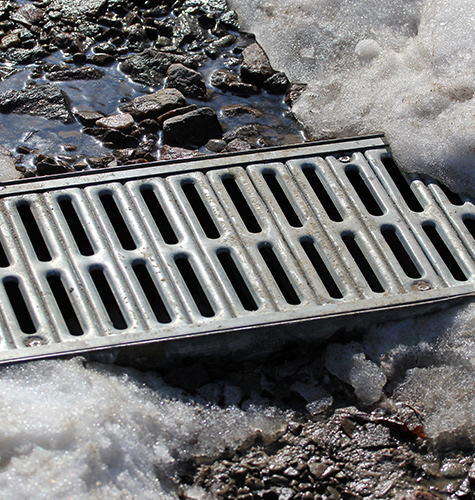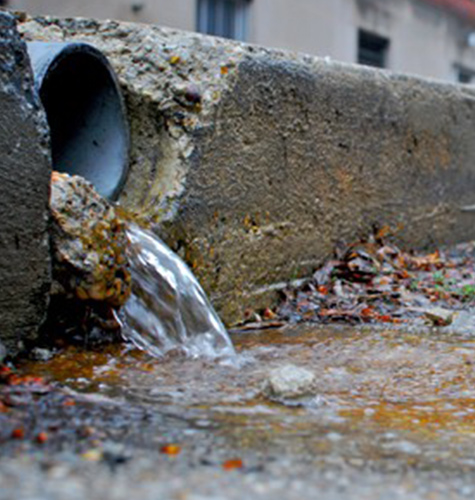View our most recent fact sheet: Finding the Source of an Illicit Discharge
Stormwater runoff from rainwater or melting snow transports pollutants into storm systems and ultimately into our local waterways. Roads, parking lots, driveways, and rooftops prevent groundwater absorption, increasing the volume of runoff. Because that runoff is not cleaned or filtered before it reaches those waterways, it is imperative we take small steps toward protecting our communities.
Stormwater can pick up harmful nutrients known as phosphorus and nitrogen, which in high levels can have toxic effects on animal, plant, and human life.
We need to work together to keep stormwater systems clear of waste and harmful chemicals. Because pollution from runoff is harmful to our environment, minimizing impacts associated with runoff will improve our water quality and quantity. Pennsylvania’s MS4 Program was developed to help reduce these pollutants.
You can communicate these tips to your residents:
- Stains, bubbles, oily residue, a sheen, and toilet paper are likely indicators of an illicit discharge.
- Use a commercial car wash, or wash your vehicle on the grass instead of the driveway.
Find more Dos and Don’ts in the fact sheet!
Feel free to use the fact sheet and any other materials on this page in any communication or educational outreach to local residents and business owners.
You cannot protect the environment unless you empower people, you inform them, and you help them understand that these resources are their own, that they must protect them.
~Professor Wangari Maathai
If you have other ideas you’d like to see us address in our MS4 educational tools, please contact us!
MS4 Permittees – The end of the Permit Year is June 30!
- Promote public participation events and activities: tree plantings and stream clean-ups!
- Conduct any Outfall/BMP inspections as needed
- Conduct in-house training for municipal staff, elected officials, and contractors
- Finalize written policy and procedure documents




